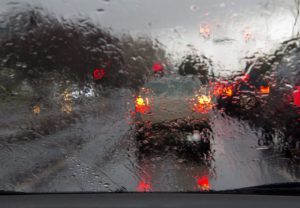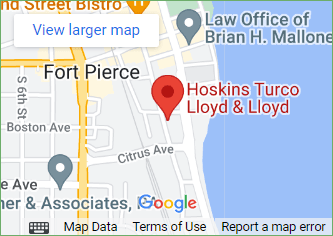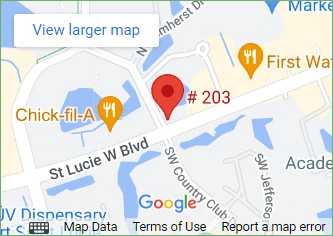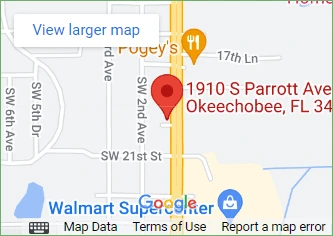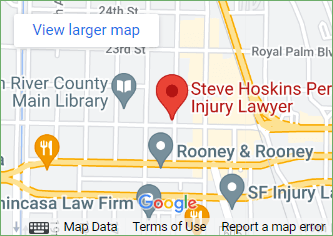Auto Accident Settlement
FAQ About Weather-Related Car Accidents on Florida’s Treasure Coast
Florida is no stranger to wild weather. Hurricanes, tornados, hail, extreme thunderstorms, flooding, and drought can all be on the forecast — sometimes all in the same week! It may sound like an exaggeration to say that Florida is a magnet for apocalyptic-level weather events, but the data confirms that this is true.
According to insurance provider Clovered, Florida has been hit with a whopping 121 hurricanes since the Saffir Simpson category system was established in 1851. That’s just shy of double of the next-highest state, which is Texas.
Hurricanes — and other severe weather systems — can cause major damages, including when they are the main reason behind a car accident. Car accidents caused by weather conditions happen all the time in Florida, and extreme weather can sometimes complicate the claims process.
If you are hurt in a car accident caused by bad weather, you may have bills piling up with no clear way to repay them. You can speak to a car accident lawyer on the Treasure Coast of Florida to learn about the factors that may affect your case and to get guidance on seeking the maximum amount of compensation available.
How Many Accidents Are Caused by Bad Weather in Florida?
Data on car accidents caused by weather in Florida can be tough to assemble together into an accurate picture. Every year, tens of thousands of accidents go unreported, and inconsistencies between reporting practices from precinct to precinct can mean, in many cases, that car accidents caused by weather conditions go undercounted.
Fortunately, the Florida Highway Safety and Motor Vehicles (FLHSMV) department does keep statewide statistics on the crashes that are reported.
2019 Florida crash report statistics show a total of 723,267 reported accident conditions listed. Note that some accidents report two or more conditions at the same time, so this number is higher than the 401,867 total crashes that year.) Of these conditions reported, 560,095 (77%) listed that the weather was “clear” or “not specified”. The rest indicate some level of significant weather activity, as broken down below:
- Cloudy — 95,126 (13%)
- Rain — 64,894 (9%)
- Fog, Smog, Smoke — 1,817 (0.02%)
- Blowing Sand, Soil, Dirt — 52
- Severe Crosswinds — 16
- Sleet/Hail/Freezing Rain — 11
- Other — 1,256
The report also lists road surface conditions. Of these, 619,257 reports (85%) listed the road condition at the time of the accident as “dry”. Other road conditions listed were as follows:
- Wet — 100,802 (14%)
- Mud, dirt, gravel — 872
- Sand — 184
- Standing or moving water — 147
- Oil — 55
- Ice/frost — 53
- Other/unknown/not specified — 1,897
Bad Weather Can Cause Accidents, But Not That Often
Notice in the data represented above that the majority of accidents did not have any adverse weather conditions listed. In other words, while the weather can cause accidents, people are often very capable of causing an accident on their own.
In a comprehensive 2015 report by the National Highway Safety Transportation Administration (NHTSA) on “Critical Reasons for Crashes” from across the U.S., this same theme emerged. Of the 2.1 million accidents studied, more than 2 million were caused directly by driver behaviors and human error. Just 52,000 of these accidents were caused by environmental-related factors — only 2%! Of the environmental causes listed, the majority involved slick roads caused by water, ice, loose debris.
Taking this information into consideration, one can come to the following conclusion: there are car accidents caused by bad weather, but the overwhelming majority of them are caused by some form of human-related factor.
Knowing this fact, when a crash occurs in bad weather, an injury victim can safely assume that one or more human factors were also involved. Even if the other driver (or even the police report) wants to attribute the accident to the weather, the fact is that most accidents are caused not by weather but by the drivers themselves.
Does a Weather-Related Accident Mean That No One Was At-Fault?
No. Weather can be a factor in an accident, but that same accident can still be revealed to have been caused by a driver mistake.
The fact is that drivers are expected to exercise reasonable precautions in all situations. When the weather turns bad, such as during heavy rain, they are expected to slow down, turn on their headlights, and proceed with caution. When visibility is extremely poor, drivers are expected to respond in a “reasonable” manner and to take all precautions necessary to avoid an accident.
Importantly, the need to exercise reasonable caution means that going the posted speed limit and obeying all traffic rules does not excuse someone from negligence. They are expected to make reasonable decisions in response to the current conditions, so if they drive as they normally would while the roads are wet and it’s raining sideways, then their behavior could actually be considered reckless.
Further, the courts and law enforcement expect people to recognize the danger inherent in certain driving conditions. Saying “it was raining so I had no control” is no excuse since every driver has seen rain before and driven in rain, so they know how dangerous it can be.
With this in mind, people injured in a car accident along the Treasure Coast area can work to establish negligence when another driver hits them, even if the weather was bad. Statistics (and some measure of common sense) both show that most accidents are either totally caused by driver mistakes or made worse because of a mistake.
Examples of Negligent Behaviors That Can Cause Accidents During Bad Weather
The following are some examples of negligent driving behaviors that can cause an accident during an extreme weather event:
- Speeding (over the limit, or too fast for conditions)
- Failing to exercise due caution
- Not paying attention
- Following too closely
- Driving aggressively or recklessly
- Driving under the influence of drugs or alcohol
- Not turning on headlights during rain and cloud cover
- Failure to obey normal traffic rules
- Failure to obey traffic special traffic rules during extreme weather (lane changes when flooding, etc)
Additionally, vehicle owners may be found negligent if they fail to keep their vehicles in a condition that allows them to drive safely in bad weather. Examples of failure to maintain vehicles to the extent it can cause a weather-related collision include:
- Faulty headlights/brake lights
- Bald tires
- Worn brake pads
- No working windshield wipers
- Issues with steering
Comparative Negligence in a Weather-Related Accident Claim
Some accidents are caused by multiple factors, including the weather. When this happens, each contributing party is expected to cover their fair share of the corresponding accident damages. So if two drivers cause your accident, then their liability insurance will have to split coverage for your excess injury costs 50/50.
Naturally, the weather isn’t going to pay for the damages it causes. In cases where the weather contributes a portion of the blame, the total injury award may be reduced by that amount by the insurer or by the court system.
Your own actions could also be seen as contributing to the accident, which would also cause your award to be reduced by your approximate percentage of fault.
Fight Back to Prove Liability and Recover Your Losses After a Weather-Related Accident Injury
Insurance companies will often attempt to argue that an accident isn’t covered because of weather-related factors or because the claimant somehow contributed to the accident. Always aggressively push back against these attempts to avoid covering your accident damages.
Speak to an experienced Treasure Coast car accident lawyer to explore your options for seeking compensation from all responsible parties. Hoskins, Turco, Lloyd & Lloyd can represent you to help handle your insurance claim and to help you estimate the full amount of your damages. You can work with any of our offices in Florida’s Treasure Coast area, including locations in Port St. Lucie, Vero Beach, Ft. Pierce, and Okeechobee. When complicated factors like bad weather come into your case, we will work vigorously to investigate the true causes of your accident and to hold at-fault parties responsible.
Call today at (866) 460-1990 or contact us online to schedule a free, confidential, and risk-free initial case review.
Verdicts and Settlements
$1.2 Million
$1.6 Million
Wrongful Death Settlement
$11.1 Million
Settlement for motorcycle accident
Locations
Ft. Pierce, FL 34950
Suite 203, Port St. Lucie, FL 34986
Okeechobee, FL 34974
Vero Beach, FL 32960
The hiring of a lawyer is an important decision that should not be based solely upon advertisements. Before you decide, ask us to send you free written information about our qualifications and experience.
We are a debt relief agency and attorneys. We help people file for Bankruptcy relief under the Bankruptcy Code. The hiring of a lawyer is an important decision that should not be based solely upon advertisements. Before you decide, ask us to send you free information about our qualifications and experience.
Hoskins, Turco, Lloyd & Lloyd © 2020 All Rights Reserved. Terms of Use and Privacy Policy
This site is protected by reCAPTCHA and the Google Privacy Policy and Terms of Service apply.
